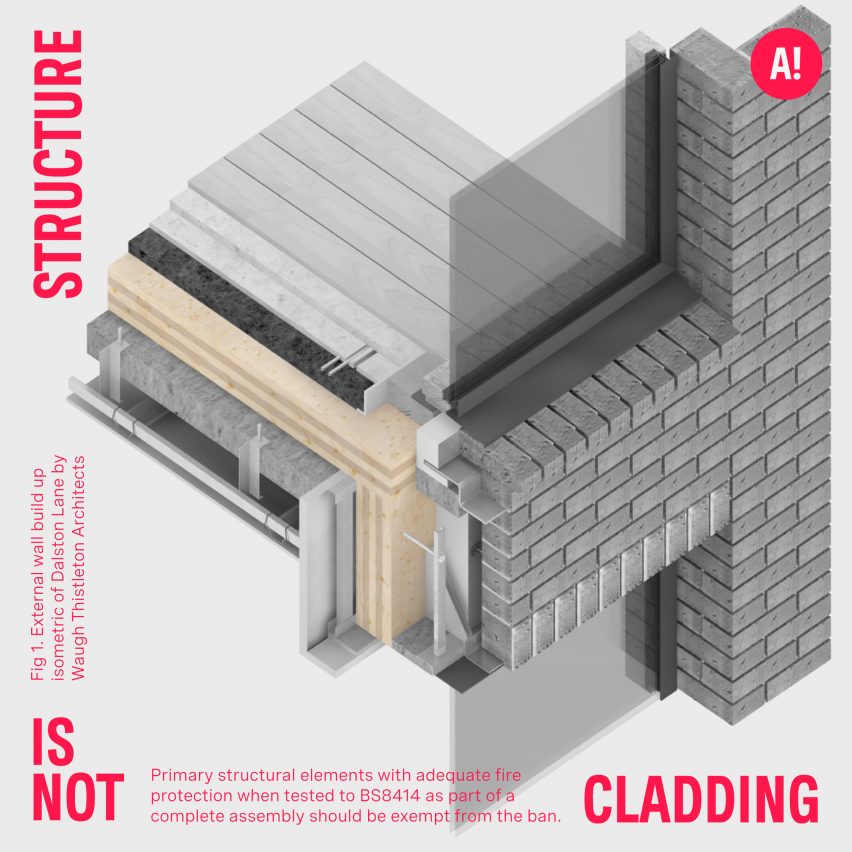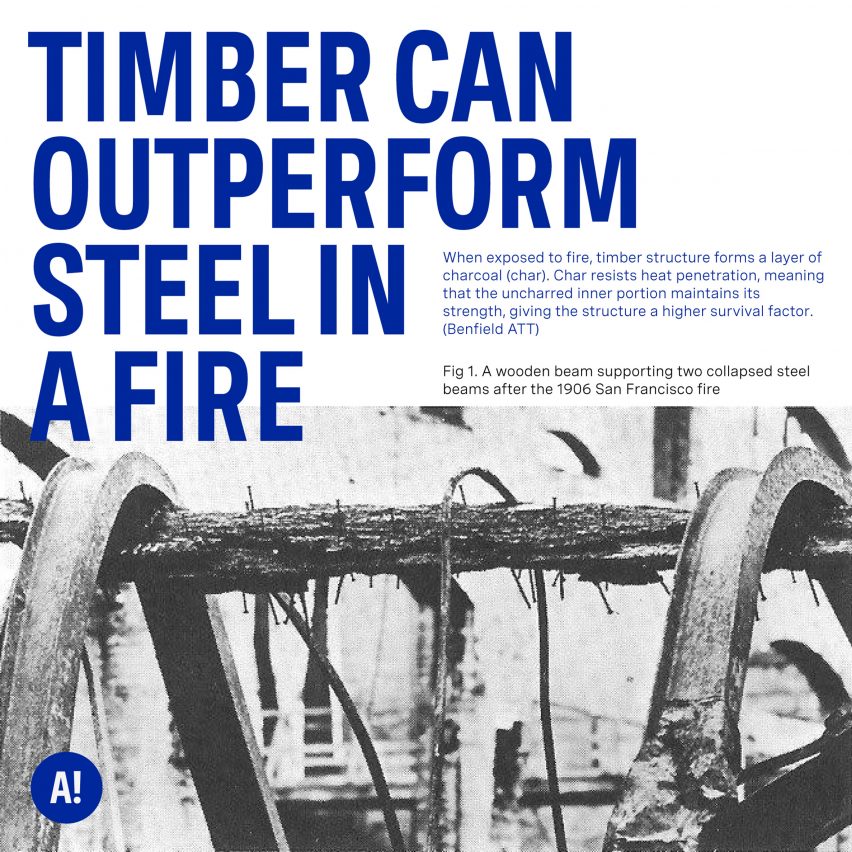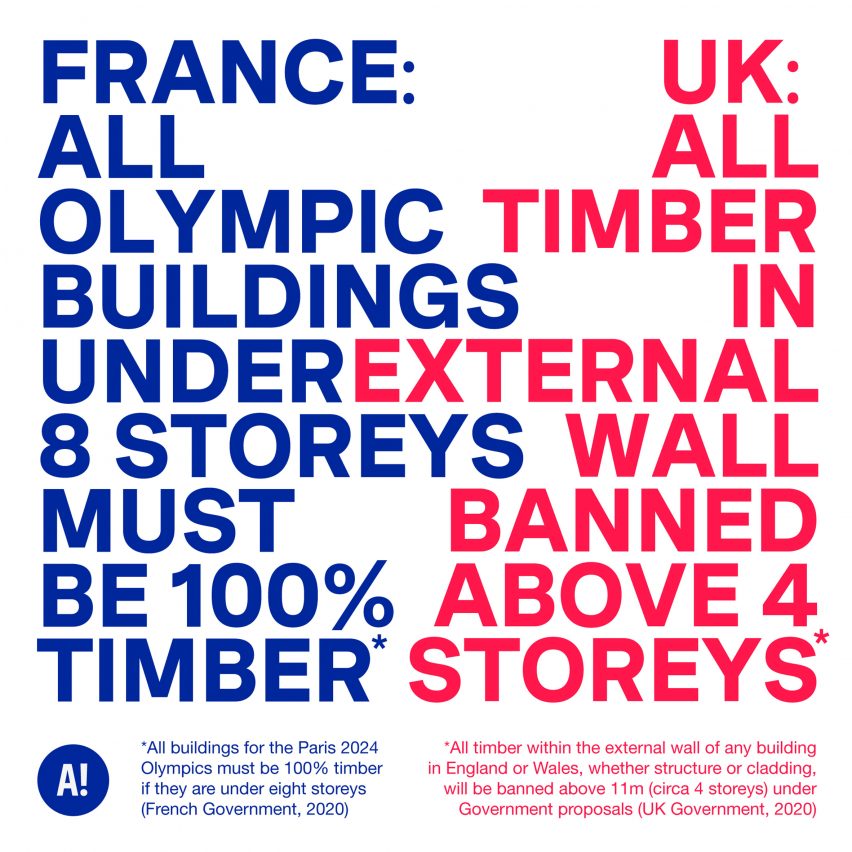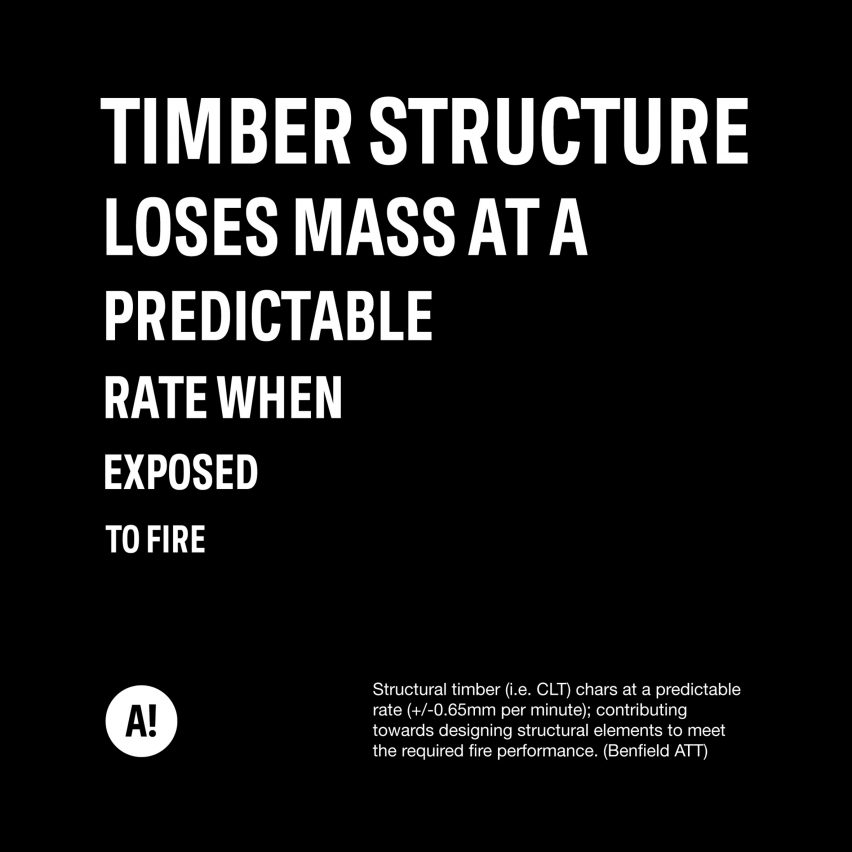
Architects Climate Action Network launches campaign to save structural timber
The Architects Climate Action Network's Save Safe Structural Timber campaign urges the UK government not to ban the use of cross-laminated timber and glulam as it could have a serious environmental impacts.
Environment awareness group Architects Climate Action Network (ACAN) has launched a campaign to encourage architects to respond to the UK government's current review of the ban on the use of combustible materials in and on the external walls of buildings, which could extend the current ban on the use of structural timber.
"The campaign's objective first and foremost is to save the safe use of structural timber from being unnecessarily banned in certain new buildings in the UK," said Sebastian Laan Lomas and Matt Rosier of ACAN.

The current consultation follows regulations introduced to limit the use of combustible materials in buildings following the Grenfell fire in 2017, in which 72 people died.
Following the release of the Hackitt Report, the UK government banned the use of combustible materials on buildings above 18 metres on the entire external wall.
This ban impacted building's facades and the cross-laminated timber and glulam structures.
Structural timber could be banned on all buildings over three stories
The government's latest consultation could result in an extension of this ban to more building types and shorter buildings – as the height could be reduced from 18 metres to 11 metres, which would impact all buildings over three stories.
"In response to recent tragedies involving fires, the government has rightly banned combustible materials on facades," Laan Lomas and Rosier told Dezeen.
"The current review of this ban extends this to include shorter buildings of 11 metres tall, including the entire external wall including the structure."

Lomas and Rosier, along with numerous architects from studios including Waugh Thistleton Architects, Architype, CF Møller Architects, Mole Architects, BDP, dRMM that have joined the campaign, believe it that a differentiation should be made between a building's structure and its facade
"The ban means that structural timber is being increasingly seen as a risk by clients, insurers, home owners, and local governments despite completed and ongoing tests that prove otherwise," the pair continued.
"It is important to distinguish between the facade, where fire has sadly proven to spread between rooms, and the structure, which makes up a large part of the building and should be able to be made from engineered timber; a low embodied carbon and carbon sequestering material."
ACAN calls for structural timber to be exempt from ban
ACAN, and architects working at studios using CLT and glulam, are calling on the government to increase fire testing to further prove that timber does not pose more of a fire risk than other structural materials.
"The government should commit to further fire testing of existing and emerging structural timber systems for different buildings types and scales," said Laan Lomas and Rosier.

"Along with instrumentally informing our robust building regulations it would help with the essential steps of reassuring building occupiers, building and PI insurers, and designers, that structural timber can be safe," they continued.
"We believe that this research, in conjunction with the ban recognising the distinction between cladding and primary structure, should enable structural timber systems such as cross laminated timber and glue laminated timber, when designed and constructed with adequate fire protection, to be added to the list of exemptions from the ban."
"There is too much at stake to allow such ill-informed legislation to pass"
ACAN believes that structural timber is the only alternative to using large amounts of concrete and steel in construction and therefore its use is key to reducing constructions CO2 emissions.
"Structural timber is the only viable sustainable alternative we have to steel and concrete," said Laan Lomas and Rosier.
"In this moment of ecological crisis, with construction accounting for 40 per cent of UK CO2 emissions, it is essential we do everything we can to make to increase the usability of this material."
"To consider banning it here, as the rest of the world is waking up to the necessity of structural timber in decarbonising construction, feels draconian and backwards. There is too much at stake to allow such ill-informed legislation to pass."

ACAN created the campaign after learning that only two architects responded to the UK government's initial consultation and aim to draw increased attention to the proposed regulations.
"We launched this campaign in order to empower designers across the industry in what is a complex and very contentious subject," explained Laan Lomas and Rosier.
"We were shocked to find that only two architects responded in the previous consultation on this ban last year and hope to significantly amplify the voice of designers this time as we believe we can meaningfully contribute to this review," they said.
"These consultations are typically woefully under-representative of architects views, who as an industry have far fewer resources to throw at lobbying and legislative activity than others," they continued.
"However as professionals, who have a legal duty to protect both the inhabitants of their buildings, and society at large, it is essential we are as vocal as we can be in such consultations. Especially in the midst of a climate emergency that is driven in no small part by construction."

For those wanting to respond to the consultation, which closes on the 25 May, ACAN suggests visiting its website, contacting an MP and sharing the images in this article.
"We have already had over 60 professionals sign our website declaring their response and we would invite others to visit the ACAN website where we have set out steps and provided information for responding, writing to your MP, and help share the campaign with colleagues, managers, suppliers and clients about the campaign and their use of structural timber," urged Laan Lomas and Rosier.
Cross-laminated timber is widely seen as a viable alternative to using concrete and steel in architecture to reduce construction'e environmental impact. Last year architects speaking at the Architecture of Emergency summit in London last month called for timber to replace concrete.
CLT is increasingly being used by architects globally with CF Møller Architects recently completing Sweden's tallest timber building, Voll Arkitekter building the world's tallest timber tower in Norway and 3XN designing the "tallest timber office building" in North America.